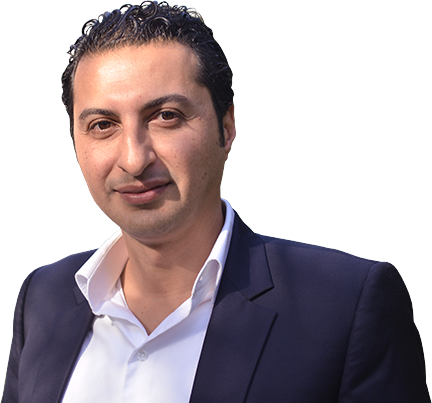We conducted a study of 250 educators at 100 higher education institutions in 17 Arab countries
- Only 11% of Arab educators regularly use educational technologies in their classrooms
- The majority of Arab higher education professors still use traditional face-to face teaching methods shying away from educational technologies
Tahseen Consulting released a study entitled “Educational Technology Usage in Arab Higher Education” which explores the use of educational technologies by university professors in 17 countries in the Arab World. The study results show that Arab educators are significantly trailing behind their peers globally in utilizing educational technologies which have been shown to increase student engagement, access, enrollment, retention, and graduation rates.
We articulate an approach promoting inter-organizational synergies and cooperation.
Learn about our Public Sector Strategy here.
Due to the region’s youthful demographics and widespread use of mobile technologies, Arab educators face the challenge of meeting new expectations of learners who want engaging, interactive, and individualized learning experiences.
“This is one of the largest studies to look at the use of educational technologies in Arab higher education institutions,” Walid Aradi, Tahseen Consulting’s CEO and leader of the study, said.
For the study, Tahseen Consulting analyzed data from 250 respondents in public and private higher education and technical and vocational training institutions across the Arab region. Participants were asked about their awareness of educational technologies, use of technology to complement teaching, and satisfaction with the functionality and language options offered by technology providers.
Due to the region’s youthful demographics and widespread use of mobile technologies, Arab educators face the challenge of meeting new expectations of learners who want engaging, interactive, and individualized learning experiences.
The study results show that only 11% of Arab higher education professors actively use educational technologies such as learning management systems in their classrooms. Regional usage rates are substantially lower than the 93% of professors in the United States who use educational technologies to introduce blending learning approaches to their classrooms.
“Blended learning approaches have been adopted globally to combine face-to-face teaching with online content and collaboration tools that allow professors to better communicate with students, allowing them to spend more time on learning activities”, said Aradi.
The study results highlight the widespread prevalence of traditional, face-to-face instruction in the Arab World
This indicates that the region is trailing behind other countries in adopting modern pedagogical approaches in higher education.
When asked about the reasons they do not use technology in the classroom, Arab professors point towards an institutional culture that fails to promote the use of technology in teaching, lack of training, and poor IT infrastructure. To move beyond face-to-face methods of instruction, Arab higher education institutions need to highlight the effectiveness of new technologies on student outcomes and train professors. Educational technologies can play a significant role in ensuring the academic success of Arab youth who have embraced mobile technologies and have come to rely on high-speed internet access.
When asked about the reasons they do not use technology in the classroom, Arab professors point towards an institutional culture that fails to promote the use of technology in teaching, lack of training, and poor IT infrastructure.
Wes Schwalje, co-author of the study commented, “Despite internet use in the Arab World increasing 27 times over the last decade, which is one of the highest growth rates in the world, Arab higher education professionals continue to rely on traditional face-to-face teaching strategies that do not incorporate technology.”
Arab educators, particularly at the largest institutions in the region, are not satisfied with commercially available technologies presently in the market. When asked how satisfied they are with current educational technologies available at their institutions, Arab higher education professionals show high levels of concern with the regional applicability of functionalities and language options.
The implication is that Arab educators appear to avoid integrating technology in their classrooms due to this dissatisfaction.
“Educators are increasingly demanding technologies that are easy to use, improve efficiency, are mobile device friendly, and which provide collaboration tools that leverage social media,” says Ridvan Aliu, CEO of EDUonGo, a recent entrant to the region and contributor to the survey. “Emerging cloud-based software as a service can help institutions educate and retain students, improve institutional management, increase staff productivity, and make the lives of students easier.”
Obtain a Copy of the Study
To obtain a copy of the study “Educational Technology Usage in Arab Higher Education” please go to http://tahseen.eduongo.com.
About the Study
Tahseen Consulting conducted the study in late 2012. The study included an English and Arabic survey of 250 professors and administrators at 100 higher education institutions in 17 countries in the Arab World. Both public and private higher education institutions were included in the sample frame. Respondents were asked about all commercially available learning technologies widely available in the region and globally.
































